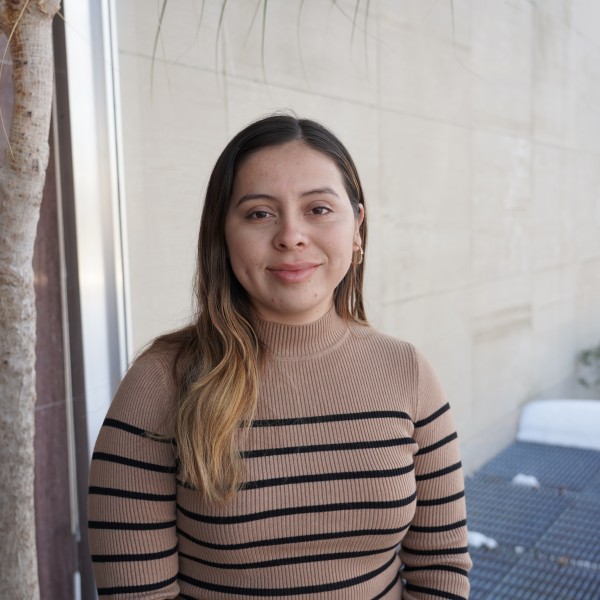What kinds of research did you perform while at Cornell AgriTech, and what do you research now?
My research at AgriTech focused on the Northern root-knot nematode, Meloidogyne hapla, and the root-lesion nematode Pratylenchus penetrans in Irish potato. I was investigating how populations of these two nematodes affected potato yield and quality so that we could better understand management action thresholds for these nematodes. Parallel to and in support of this, I was also developing a DNA-based method for accurate detection and rapid quantification of these nematode populations in the soil prior to planting.
Now my primary research focus is on root-knot nematodes in sweet potato. North Carolina produces about 50% of the nation’s sweet potatoes, thus it is an important crop to many farmers in the state. It also happens to be the state potato! In addition to a few endemic root-knot nematode species, there is a newly emerging species, Meloidogyne enterolobii, in North Carolina. It’s of concern because this species can overcome host resistance genes previously used to control root-knot nematode in sweet potato and other crops. I am approaching this research from multiple angles, investigating best chemical and cultural management options, learning more about the biology and distribution of M. enterolobii, and collaborating with plant breeders to screen for new sources of resistance. Moving forward, I’m very interested in continuing to research DNA-based quantification methods and investigating action thresholds.
What was the most significant research discovery you made while at Cornell AgriTech?
This is a tough question! I don’t think I can narrow it down to the most significant finding. There were, however, many smaller “ah-ha!” and “wait, what?” moments that kept things interesting. For example, we were able to quantify root-knot and root-lesion nematode populations in commercial potato fields and use this data to develop detailed prediction maps of populations across the field. With this we could visualize the spatial characteristics of the nematode populations and help inform better soil sampling strategies. There was something really cool about “seeing” the nematode patterns in the field through the data. Ultimately, I think my graduate research project at AgriTech opened more questions than it answered, but that is part of the research process, right? I am looking forward to exploring these questions further in my new position.
In what ways did your experience as a graduate student at Cornell AgriTech shape your current career path?
While at Cornell AgriTech from 2014 to 2019, I participated in research projects, extension projects and on-farm field trials; presented at academic conferences and extension events; participated in the Geneva graduate student leadership group; served on a faculty search committee; assisted in writing grant proposals; and served as a mentor through the Summer Scholars program. Looking back, I realize it was incredible that I had the opportunity to participate in not just one or two of these activities, but all of them! This involvement reaffirmed my interest in a career in academic research and extension. Also, I was a student at AgriTech during an important period of growth and change for the community there – the rebranding of Cornell AgriTech, the excitement of hiring new faculty, a School of Integrated Plant Science (SIPS) program review, and changes to the plant pathology graduate program. I think these shared experiences showed me the value of community, both the tangible thing and the feeling.
What knowledge from your graduate student days at Cornell AgriTech have you most utilized in your current role?
The most formative piece of knowledge I learned at AgriTech that I am applying and still building upon in my current role is how to talk with different groups of people. At AgriTech, I was fortunate to interact with many people of different educational backgrounds and project familiarity – everyone from faculty and postdocs, to vegetable producers, extension leaders, and even young schoolchildren. Through this, I saw that doing good agricultural research was only half the equation – explaining it well was the other half. Everyone, no matter their expertise or level of science literacy, should be able to learn something from your interaction. As a side note, I believe Cornell AgriTech and its academic programs excel at teaching students this skill and providing chances for them to practice it. I am now an assistant professor of plant nematology at North Carolina State University with a split research and extension appointment. In my current role, I interact with many of these same groups, and thus put the knowledge I first learned at AgriTech into further practice.
If you could give advice to AgriTech graduate students as they make plans for future careers, what would it be?
While I was at AgriTech, we had this student-run “Career Exploration Series” in which different speakers (usually Cornell alumni, friends of AgriTech, or SIPS collaborators) would come talk to graduate students about their career paths. We had speakers from academia, teaching, government, science writing, industry, and policy, just to name few. I found these sessions incredibly helpful for learning about potential job options and tips for attaining career goals. Every speaker we had was wonderful; they were excited to participate and were open to all our questions. My advice to current students would be to keep this series going. I guarantee you will learn about a career you never even considered before. No matter what career you eventually go into, it is likely that at some point you’ll work with folks from these different sectors of science, so having a bit of background on their job position and their motivation can help make you a better team!
Header image: Adrienne Gorney, former graduate student at Cornell AgriTech, waters a plant in the lab of Sarah Pethybridge, associate professor of plant pathology and plant-microbe biology. Photo by Allison Usavage





